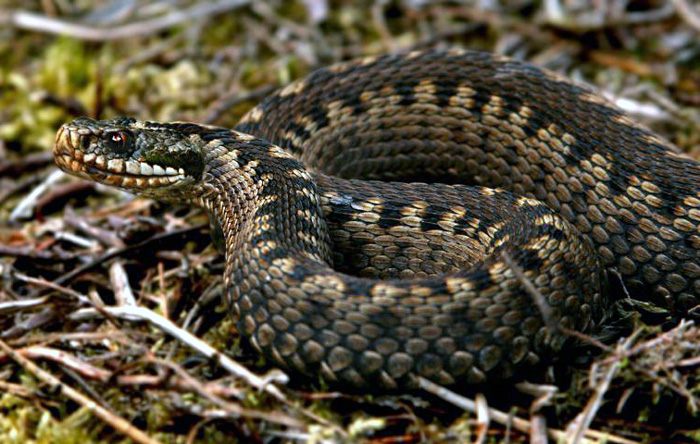Believe it or not summer is here, so many of us will be spending more time out and about, which is obviously good but can on occasions bring with it extra concerns.
After media reports of a number of snakebites from adders, we have found ourselves being asked by delegates on our first aid courses about the treatment of snakebites in the UK. Most of the time snakes will avoid humans, but if they are disturbed they might bite in “self defence”.
Firstly we must note that the chances of getting bitten by a snake in the UK are very low. This combined with the fact that there is only one venomous snake indigenous to the UK [the adder], possibly explains the high news profile of the small amount of snakebites. About 100 adder bites are reported in the UK each year, most occurring between June and August, peaking in July.

When venomous snakes “bite” they do not always inject their venom, these cases are called dry bites and can account for up to 50% of bites.
If an adder does inject its venom the person bitten is likely to feel very anxious plus have some of the following:
nausea [feeling sick] and vomiting
dizziness and possible fainting
pain in the area of the bite
redness and swelling in the area of the bite
What to do if someone has been bitten by a snake/ treatment of snakebites in the UK
Keep everyone calm.
Try to remember the shape, size and colour of the snake- but DO NOT try and catch the snake.
Keep the part of the body that has been bitten as still as possible.
Remove watches and jewellery from the bitten limb as it may swell up.
Call 999 to request an ambulance or visit your nearest A & E department.
There have been a few cases of more exotic venomous snakes being released or escaping in the UK, biting during handling or people traveling abroad being bitten.
If someone is bitten by these other venomous snakes their symptoms might include:
extensive swelling
blistering
bleeding
muscle paralysis possibly effecting swallowing and breathing
The initial treatment of snakebites in the UK is the same as above. Once in the hands of the NHS the treatment is normally just observation for 24 hours in case of any complications. Anti-venoms and longer hospital stays might be required in some cases.
On our First Aid in Remote Locations course we look at this topic in much more detail.
